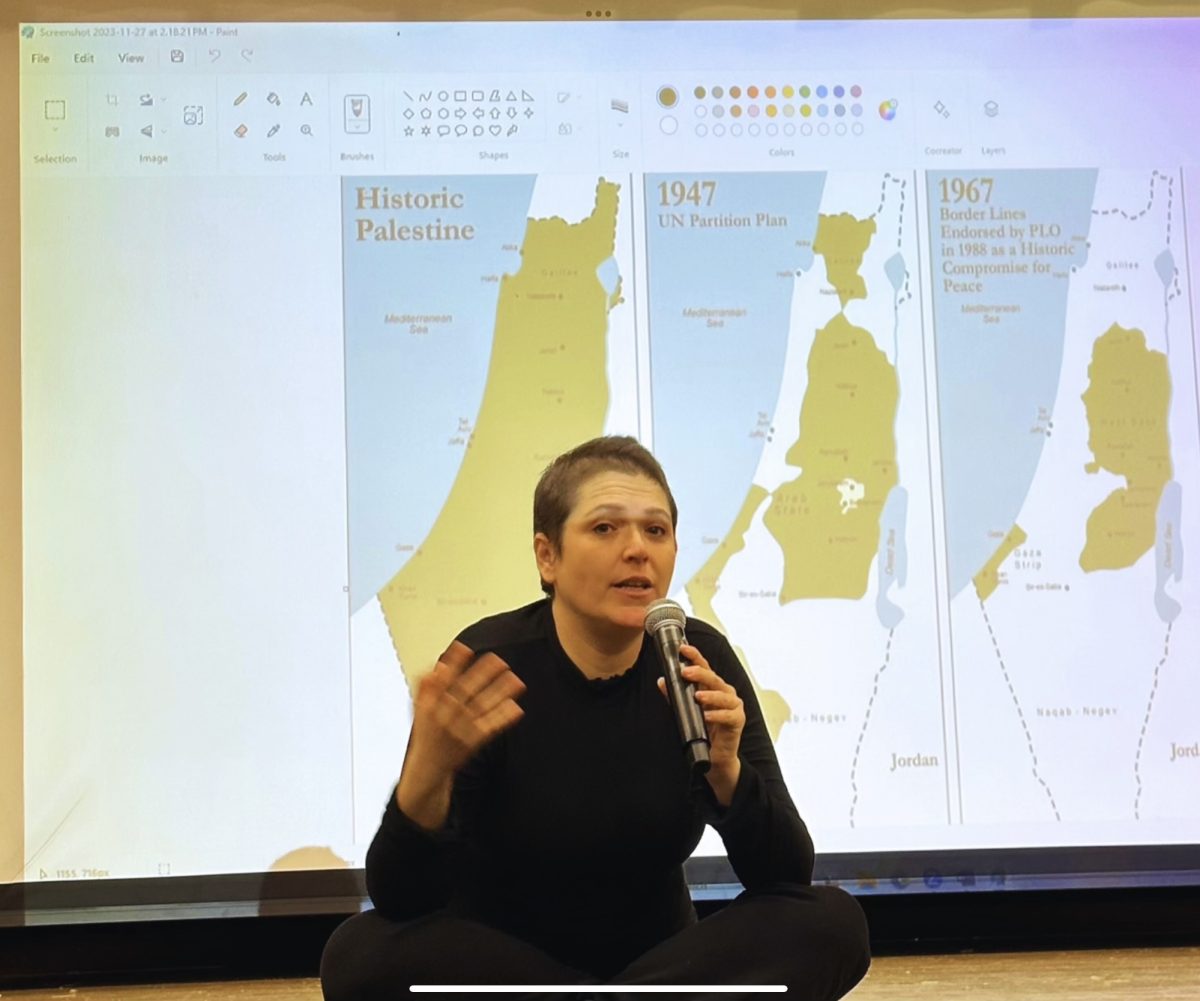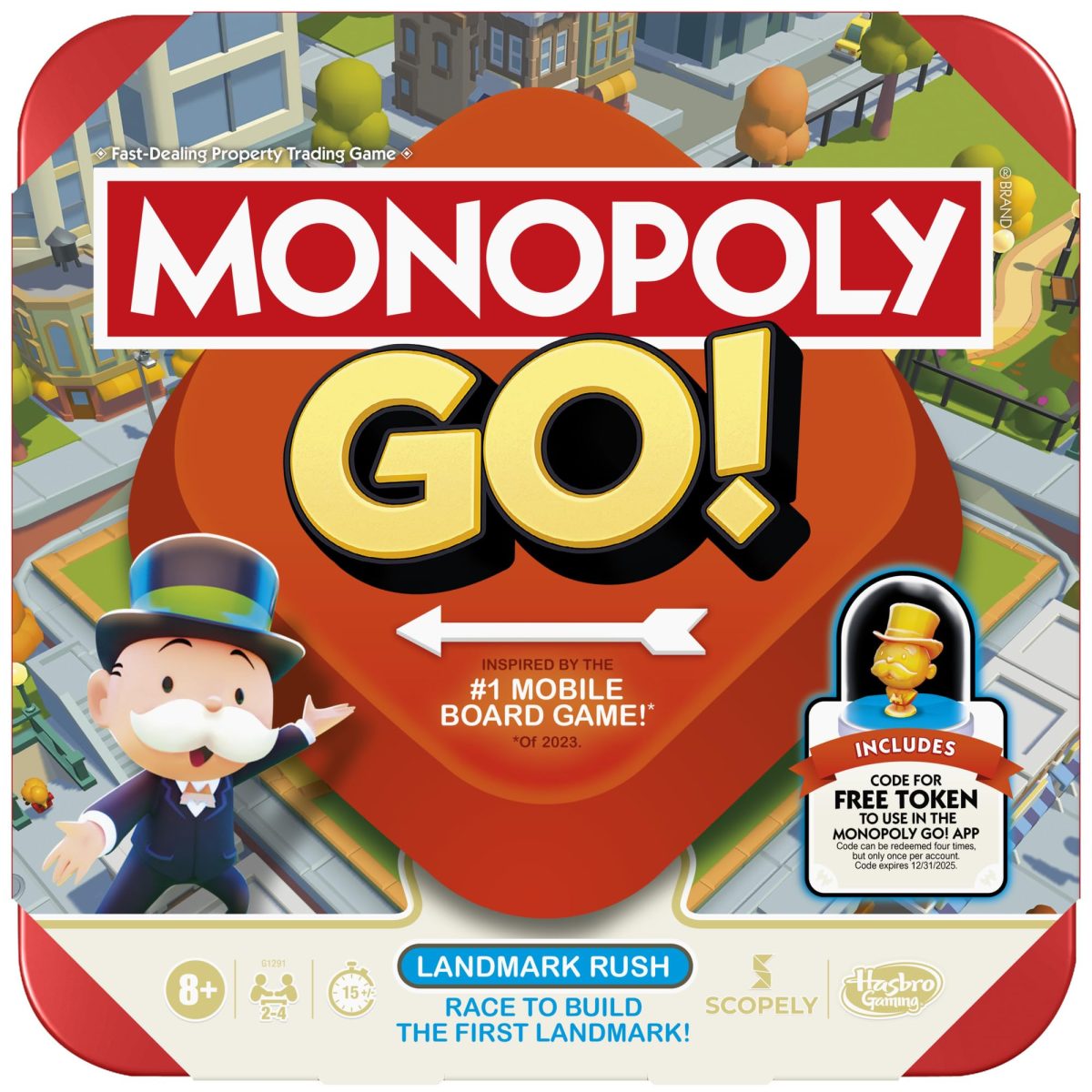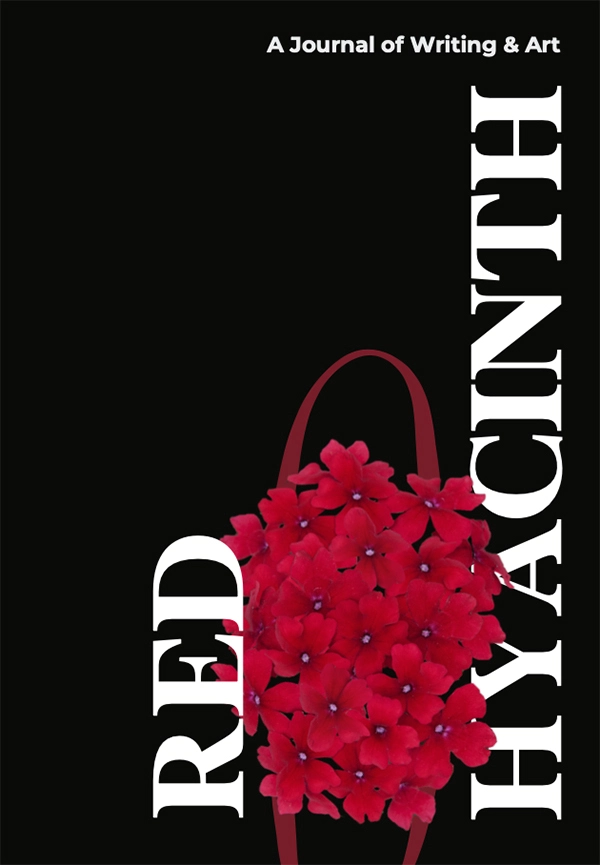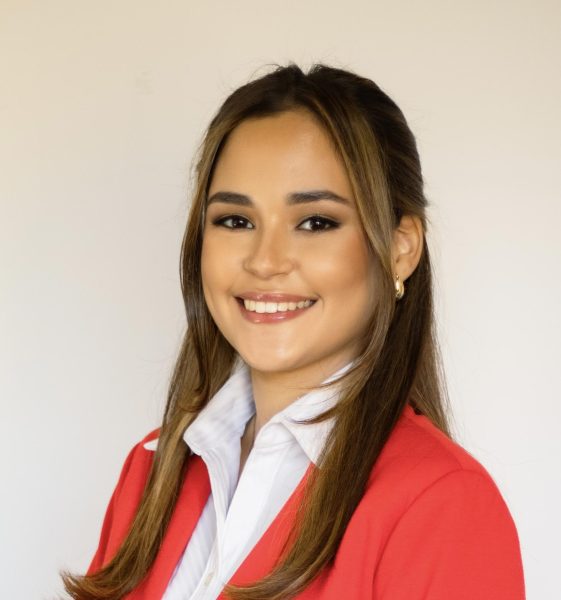Beth Schuman, a heart-motivated long-time activist, spoke to Mercy’s community about the longstanding humanitarian crisis between Israel and Palestine in December in Dobbs Ferry.
To comprehend the complexity of the Israeli-Palestinian conflict, we must delve into its historical, religious, and political roots that span thousands of years. The dispute essentially involves competing national and territorial claims between Israelis and Palestinians.
In advocating for peacemaking, Schuman emphasizes the importance of accepting diverse opinions. Raised in “a very right-wing Israeli Family,” she sought to broaden her perspective, challenging preconceived notions. Schuman’s journey unveiled the existence of another narrative contrary to her initial Zionist education.
She has proudly tried to show her mother the other side of the narrative she was taught.
The Zionist movement gained momentum in the late 19th century, seeking to establish a national homeland for Jewish people after the Balfour Declaration in 1917, where the British government expressed support for establishing a “ national home for the Jewish people” in Palestine.
Two pivotal moments post-World Wars significantly escalated tensions. After World War I, the League of Nations granted Britain the power to administer Palestine, dividing the land and intensifying friction.
Post-World War II witnessed increased immigration and global sympathy for Jewish refugees and the Zionist cause.
In 1947, the United Nations proposed a partition plan to divide Palestine into separate Jewish and Arab states.
International efforts to resolve territorial and refugee issues persist, entangled in historical grievances, competing national aspirations, and complex geopolitical factors.
Schumae was told that movements such as J Street were considered antisemitic. J Street is a non-profit organization founded in April 2008, and its primary goal is to end the conflict between Israelis and Palestinians in a pacific and diplomatic way.
Schuman says, “While I was raised, I had a right hard narrative; it wouldn’t have ever occurred to me that there was another narrative.”
She highlights the tragic cycle perpetuated by the conflict, where children born into it often become casualties, driven towards extremist ideologies. Schuman shares a personal account of a friend, a Palestinian, who lost family members in an unfortunate event, altering their relationship due to the conflict’s impact.
“While in New York, I had a close friend who was Palestinian. Her brother, her best friend, and her kids were killed while they were waiting in a hot area where Israelis shot them. They all died, and suddenly, my friend was not my friend anymore.”
This causes passionate people to feel sympathy for terrorist groups such as Hamas, she says.
Schuman’s exposure to the other side unfolded during college, fostering a deep friendship with the only Palestinian student on campus.
Schuman says, “We were fast friends; we would set up weekly meetings to discuss what we were taught.”
This exchange of narratives left her astonished, prompting a profound reevaluation. The epiphany deepened during her 2005 trip to Israel, coinciding with the disengagement plan or “Gaza pullout.”
Schuman adds, “There are different narratives about how the past, present, and future unfold.”
This all took place in 2005. The disengagement plan, also known as the “Gaza pullout” or “ hitnatkut,” was implemented by the Israeli government and led by Prime Minister Ariel Sharon. It involved the evacuation of Israeli Civilians from the Gaza Strip and four settlements in the northern West Bank.
Witnessing “a chain of hands formed by settlers in protest,” Schuman confronted the unsettling presence of racism in the Holy Land. Disconcerted by this atmosphere, she sought solace in India for six years, attempting to distance herself from the conflict.
At the same time, Schuman’s sister was becoming ultra-orthodox while she was in Jerusalem. They were sisters with very different paths going on in their lives.
She returned to the United States for her master’s degree while studying. Her professor introduced her to the film “Disturbing the Peace,” a 2016 documentary film about former enemy combatants from Israel and Palestine soldiers who were tired of the never-ending war and started a nonviolent peace organization.
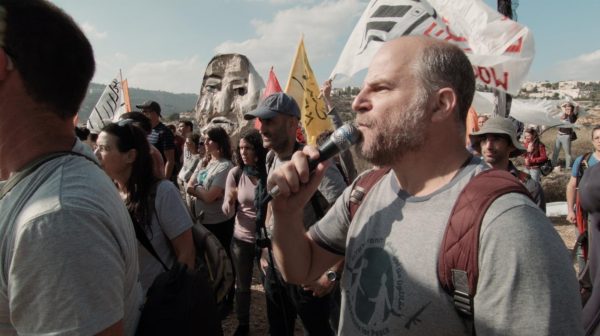
Schuman encountered the individuals featured in the film, and she explained their connection. It served as an eye-opening revelation for her.
She shares a pivotal moment when one of her classmates asked a Palestinian man in the film how he could overcome hate after undergoing torture from the other side for more than 11 years, and he genuinely and profoundly answered he learned how to forgive.
She initiated her involvement with the Peace Organization known as Combatants For Peace, a collaborative movement uniting Israelis and Palestinians with a shared goal of resolving the conflict and fostering peace within both communities. This initiative attracted former combatants from both sides of the active conflict.
Schuman openly recommends watching the film.
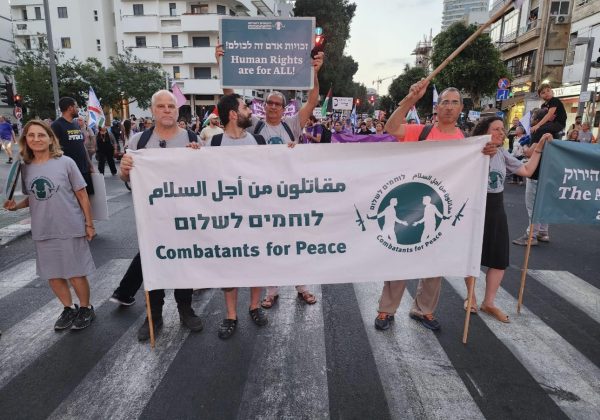
Despite her dedication to peace, Schuman critiques media negligence in covering nonviolent protests, particularly those of Combatants For Peace. The struggles within the peace community, susceptible to infiltration by extremists, remain largely unnoticed.
In her unwavering pursuit of peace, Schuman aligns herself with remarkable survivors who, despite harrowing experiences, advocate for a harmonious resolution.
Schuman concludes by emphasizing the disproportionate impact on children in this conflict, urging a reconsideration of the narratives supported. She challenges the choice between coexistence and destruction, acknowledging the difficulty of promoting peace amidst the turmoil caused by conflicting perspectives.
Schuman says, “Or we figure out how to leave with each other or kill each other, which both are possible, but you have to consider which narrative you are going to support.”
The talk serves as a poignant reminder that, tragically, the most innocent—the children—bear the heaviest burden in the quest for lasting peace.
Schuman’s words for young mercy students:
Perhaps it is cliche, but I do believe that peace starts from within. It takes a huge amount of courage to forsake the narratives we are raised with and reach across the aisle to embrace “the other.” This is true not only when it comes to the Israeli-Palestinian conflict, but is true of any conflict – from the interpersonal to the political. To embrace forgiveness instead of hatred and revenge takes true strength and courage. Every single one of us has to make the choice of who we want to be: do we want to perpetuate the narratives of fear and loss, leading to anger and violence? Or do we want to make the choice to try something new? Of course, this is easier said than done. It takes tremendous empathy, compassion, courage and fortitude to truly embrace peace, and each other, as true equals. Once we do this – the question then becomes – how do we treat people when we see them as truly equal to ourselves?



